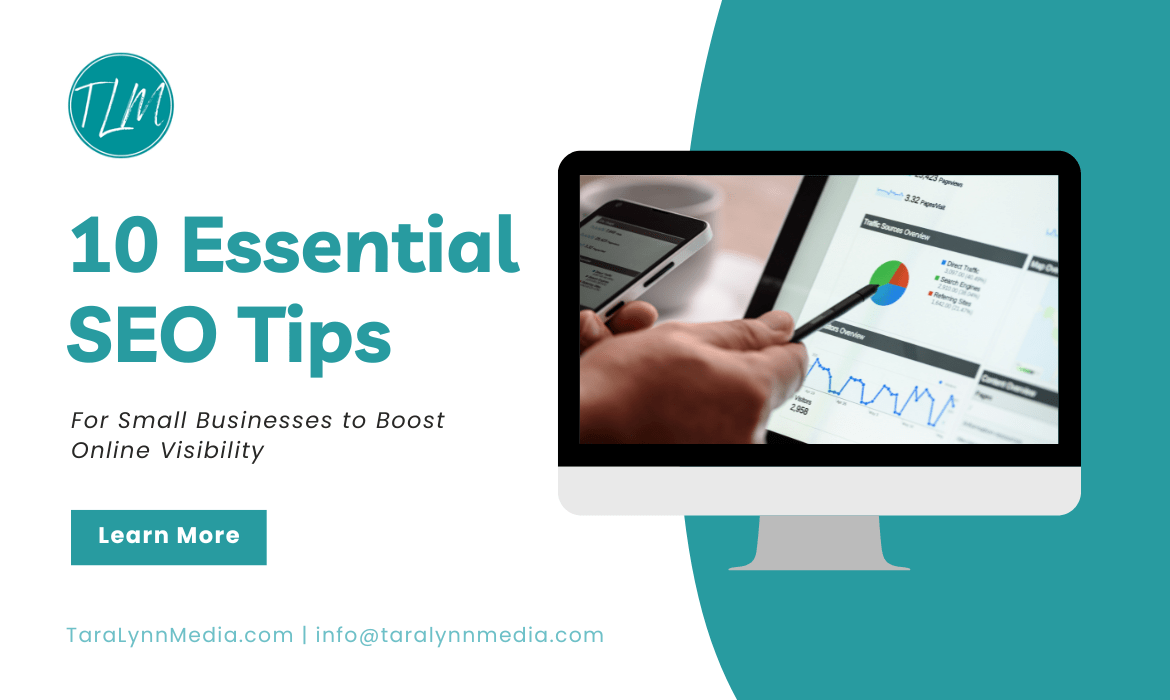
We all know that having a strong online presence is essential for the success of any business today. However, with so much competition out there, it can be hard to stand out and get noticed. That’s where SEO comes in.
SEO, or Search Engine Optimization, is the practice of improving the quality and quantity of website traffic by increasing the visibility of your website or web page in search engine results pages (SERPs). In simpler terms, it’s the process of making sure your website shows up at the top of search engine results when someone searches for keywords related to your business.
Here are 10 things you need to know about SEO for your small business:
1. Keywords are key
One of the most important aspects of SEO is keyword research. You need to identify the keywords that your target audience is using to search for your products or services and then optimize your website content accordingly. Use tools like Google Keyword Planner and SEMrush to find the right keywords for your business.
2. Content is king
High-quality content is essential for SEO. Make sure your website has relevant, informative, and engaging content that incorporates your target keywords. Keep in mind that search engines favor fresh, original content, so update your website regularly with new blog posts, articles, and other content.
3. On-page optimization matters
On-page optimization refers to the elements on your website that you can control, such as title tags, meta descriptions, header tags, and image alt tags. Make sure these elements are optimized with your target keywords to improve your website’s visibility in search results.
4. Backlinks are important
Backlinks, or links from other websites to your website, are an important factor in SEO. Aim to get high-quality backlinks from reputable websites in your industry. You can do this by creating valuable content that other websites will want to link to or by reaching out to website owners and asking for a backlink.
5. Local SEO is crucial
If you have a local business, local SEO is essential for getting found by potential customers in your area. Optimize your website for local keywords, create a Google My Business listing, and get listed in local directories to improve your visibility in local search results.
6. Mobile optimization is a must
With more and more people using their mobile devices to search the internet, having a mobile-friendly website is essential for SEO. Make sure your website is optimized for mobile devices and loads quickly to improve your search engine rankings.
7. User experience matters
Search engines favor websites that provide a good user experience. Make sure your website is easy to navigate, loads quickly, and provides valuable content to visitors. This will not only improve your search engine rankings but also help convert visitors into customers.
8. Analytics are important
To measure the success of your SEO efforts, you need to track your website traffic and analyze your data. Use tools like Google Analytics to monitor your website’s performance, identify areas for improvement, and make data-driven decisions.
9. SEO is an ongoing process
SEO is not a one-time thing. It requires ongoing effort to maintain and improve your search engine rankings. Stay up to date with the latest SEO trends and best practices, and continue to optimize your website and content to stay ahead of the competition.
10. Hiring an SEO expert can help
While you can certainly handle SEO on your own, hiring an experienced SEO professional can help you achieve better results and save you time and effort. Consider working with a reputable SEO agency to help you develop and execute a comprehensive SEO strategy for your business.
